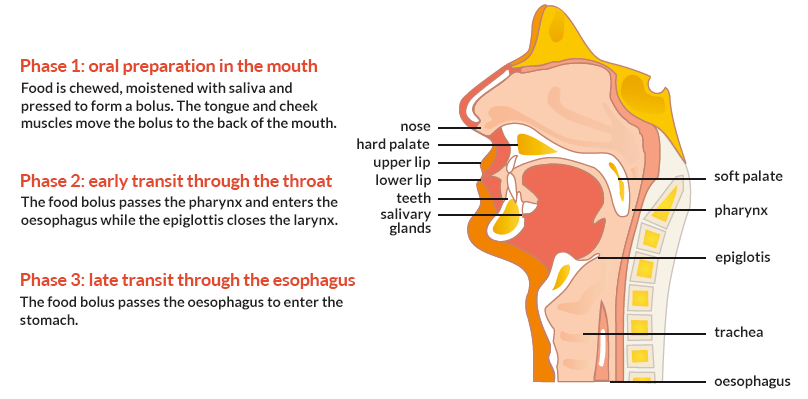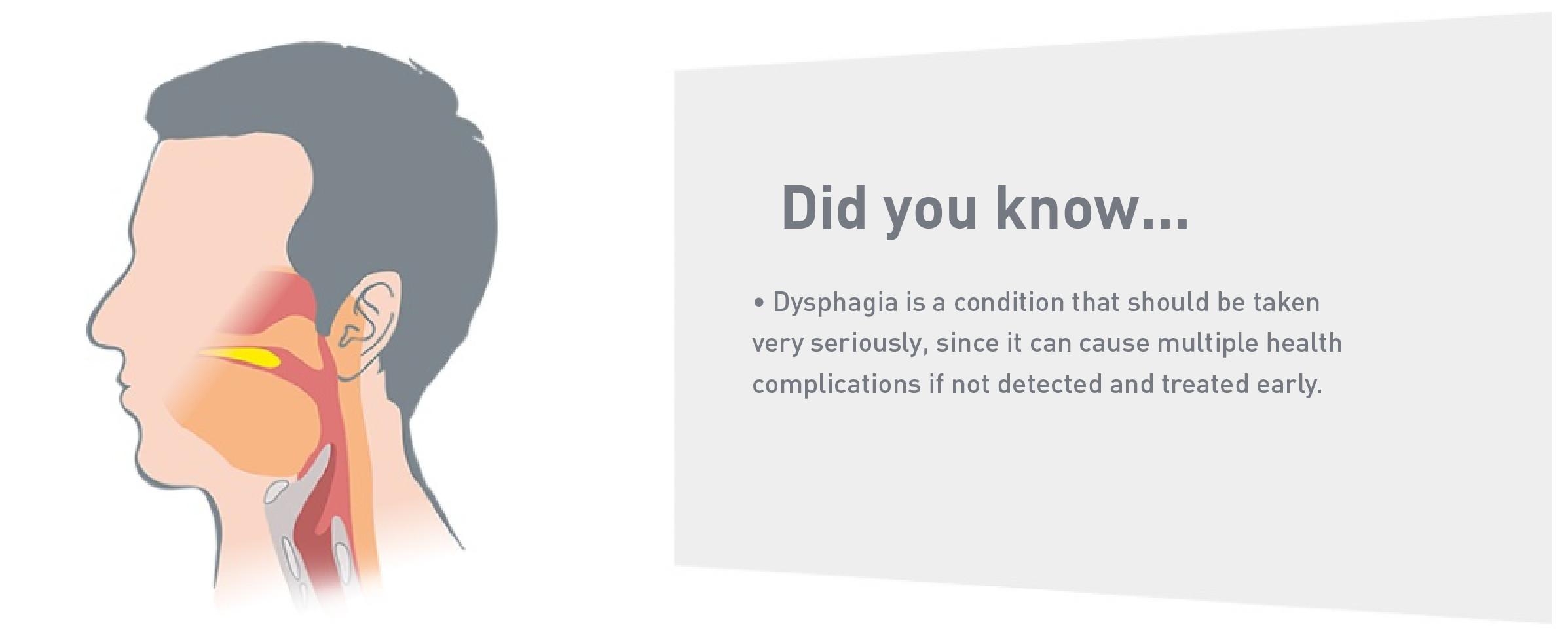Dysphagia is a medical condition which describes the difficulty in swallowing solids or liquids. A person suffering from dysphagia may either have problems forming a bolus (the mass of food to be swallowed) in the mouth or have difficulty moving the bolus from the mouth to the stomach.
Swallowing is a complex process involving various muscles, glands and nerves. The swallowing process consists of three distinct phases, each controlled differently.

Dysphagia is often caused by disease or damage to the nervous system, spasms of the muscles in the esophagus or other conditions that physically block the esophagus, or cause it to narrow. This may cause the food to enter the airway instead of the esophagus, thus causing serious health complications.

"OROPHARYNGEAL DYSPHAGIA" is the medical term used to describe swallowing disorder. Oropharyngeal dysphagia is characterized by:
- The difficulty in transforming food into a food bolus of appropriate format and size to be swallowed.
- The difficulty in moving food to the back of the mouth.
- The need to make several attempts to swallow food.
- Difficulty in correctly advancing the bolus into the stomach, without it being retained in the throat or passing into the lungs.
The severity of difficulty swallowing can range from moderate difficulty to total inability to swallow.

Another risk factor is aging, where changes in the body due to acute or chronic neurological conditions may worsen swallowing.
Recommended bibliography:


